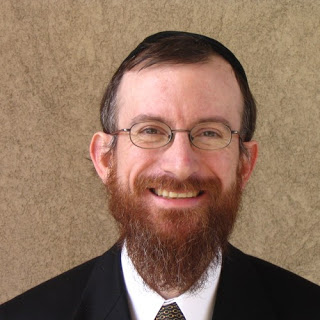With the presidential race now so prominent in the collective American consciousness, the following story is especially apropos. In the Ohr Somayach Yeshiva in Jerusalem, there was an elderly native of the city who prayed with the Yeshiva each morning. On the morning following the presidential election in the United States, before prayers began, he went to one of the American boys and asked him who had won.
I don’t know if the young student knew the answer, but he was struck by the question. Why would an old man from Jerusalem care about the elections, so much so that he would go out of his way to ask about the results before prayers? Doesn’t G-d come first?
Asked for an explanation, the man replied that he was about to say a blessing thanking G-d for giving him the opportunity to be part of the Jewish People. Although everyone is created in the image of G-d and every righteous person has a share in the World to Come, to be called to serve G-d through all His Commandments is unique privilege. And when making that blessing, he wanted to think about the greatest and most powerful non-Jew in the world!
To give the story a bit of deeper insight, consider that this elderly gentleman lived in poverty in a small Jerusalem apartment. If I’m not mistaken, the protagonist used to sit in the back of the Bais Medrash (study hall), tying Tzitzis (fringes on the corners of garments) for a living while he reviewed the Babylonian Talmud by heart. He was quite poor, yet considered himself blessed beyond the most powerful man in the world.
Every one of us has our own individual set of challenges and opportunities placed before us. Our Sages tell us that we must say, “the entire world was created for me.” Whatever our situation, we have incredible blessings which we often take for granted. Most of us have legs to walk on, are able to breathe the air around us, and are able to marvel at a sunset. But even those who are not able to do all those things have many others for which to be thankful.
Rabbi Asher Z Rubenstein of Jerusalem offers another parable, related to the Commandment of Bikurim, bringing the first fruits to Jerusalem. After bringing Bikurim, we are told: “and you shall rejoice in all the good which HaShem your G-d has given to you and your house, you and the Levite and the stranger among you” [Deut 26:11].
Imagine a farmer who owns a few acres of land, works that land for a year, sees it produce enough food to feed his family, and happily packs a portion of his small crop to bring up to Jerusalem. But when he reaches the main road to Jerusalem, it is blocked by one carriage after another — each carriage laden with a different item, each offering as large as the farmer’s entire crop. And in the middle of it all sits one wealthy man in a gleaming carriage, the owner of all this bounty, produced off his land by hired help while he sat in the lap of luxury.
Suddenly, the farmer isn’t so happy anymore. Nothing has changed — except his heart. He feels inadequate, even jealous. That is the moment where the farmer must remind himself to “rejoice in all the good which HaShem your G-d has given to you and your house.”
Today, our world is filled with opportunities for us to feel that inadequacy. In the middle of an economy in which so many are unemployed or underemployed, we can now explore the lifestyles of billionaires as never before. There’s even a website for the “rich kids of instagram,” which features photos of wealthy young men and women (apparently taken from the Instagram photo-sharing site) enjoying their mansions, fancy cars and 12-course meals prepared by their private chef.
Your world was created for you, and no other. Hashem wants you to appreciate the blessings that you have, even among the challenges unique to your situation. That is the message of our reading. We should be thankful for what we have, and ask G-d to fulfill our needs — not those of our current or next president, nor those of a young man overwhelmed by wealth. We have something much more valuable, if we only recognize it — a world tailor-made just for us!

